I'm trying to generate my own index.html file every time I build my application in Webpack and to do so, I installed html-webpack-plugin.
I understand that in order generate an index.html file in my dist folder, I need to have the following in my webpack.config.js file:
output: {
path: path.resolve(__dirname, './dist'),
filename: '[name].js',
},
plugins: [
new HtmlWebpackPlugin(), // creates an index.html file
],
With the above settings, it should generate the following, which is my desired output:
<!DOCTYPE html>
<html>
<head>
<meta charset="UTF-8">
<title>Webpack App</title>
</head>
<body>
<script type="text/javascript" src="build.js"></script></body>
</html>
Unfortunately, I've been using the vue-simple Webpack boilerplate to build my VueJS learning project and as a result, it has a publicPath entry in the output section:
output: {
path: path.resolve(__dirname, './dist'),
publicPath: '/dist/',
filename: '[name].js',
}
With the above settings, the html-webpack-plugin understandably generates the following script tag in the index.html file in my dist folder which is NOT what I need since src is now pointing to "/dist/build.js".
<script type="text/javascript" src="/dist/build.js"></script></body>
If I remove publicPath from my output settings, I can't load my page from my development server since everything breaks. I read this SO post about publicPath but I'm still unsure of what I should do to achieve my goals since everything was set up by the boilerplate. How should I edit my webpack.config.js file in order to generate my desired index.html file when I build without breaking anything on my dev server?
Below is my full webpack.config settings:
const path = require('path');
const webpack = require('webpack');
require("babel-polyfill"); // for async await
const HtmlWebpackPlugin = require('html-webpack-plugin');
module.exports = {
// babel-polyfill for async await
// entry: ["babel-polyfill", "./src/main.js"],
entry: {
build: ["babel-polyfill", "./src/main.js"]
},
output: {
path: path.resolve(__dirname, './dist'),
publicPath: '/dist/',
filename: '[name].js', // this will output as build.js
},
module: {
rules: [{
test: /\.css$/,
use: [
'vue-style-loader',
'css-loader'
],
}, {
test: /\.scss$/,
use: [
'vue-style-loader',
'css-loader',
'sass-loader'
],
}, {
test: /\.sass$/,
use: [
'vue-style-loader',
'css-loader',
'sass-loader?indentedSyntax'
],
}, {
test: /\.vue$/,
loader: 'vue-loader',
options: {
loaders: {
// Since sass-loader (weirdly) has SCSS as its default parse mode, we map
// the "scss" and "sass" values for the lang attribute to the right configs here.
// other preprocessors should work out of the box, no loader config like this necessary.
'scss': [
'vue-style-loader',
'css-loader',
'sass-loader'
],
'sass': [
'vue-style-loader',
'css-loader',
'sass-loader?indentedSyntax'
]
}
// other vue-loader options go here
}
}, {
test: /\.js$/,
loader: 'babel-loader',
exclude: /node_modules/
}, {
test: /\.(png|jpg|gif|svg)$/,
loader: 'file-loader',
include: '/src/assets/images',
options: {
name: '[name].[ext]?[hash]'
}
}]
},
resolve: {
alias: {
'vue$': 'vue/dist/vue.esm.js'
},
extensions: ['*', '.js', '.vue', '.json']
},
devServer: {
historyApiFallback: true,
noInfo: true,
overlay: true
},
performance: {
hints: false
},
plugins: [
new webpack.ProvidePlugin({ // this injects the following into .vue files
_: "lodash",
math: "mathjs",
moment: "moment",
axios: "axios",
Chart: "chart.js",
firebase: "firebase",
}),
new HtmlWebpackPlugin(), // creates an index.html file in dist
],
devtool: '#eval-source-map'
};
if (process.env.NODE_ENV === 'production') {
module.exports.devtool = '#source-map'
// http://vue-loader.vuejs.org/en/workflow/production.html
module.exports.plugins = (module.exports.plugins || []).concat([
new webpack.DefinePlugin({
'process.env': {
NODE_ENV: '"production"'
}
}),
new webpack.optimize.UglifyJsPlugin({
sourceMap: true,
compress: {
warnings: false
}
}),
new webpack.LoaderOptionsPlugin({
minimize: true
})
]);
}
Below is the folder structure I have:
